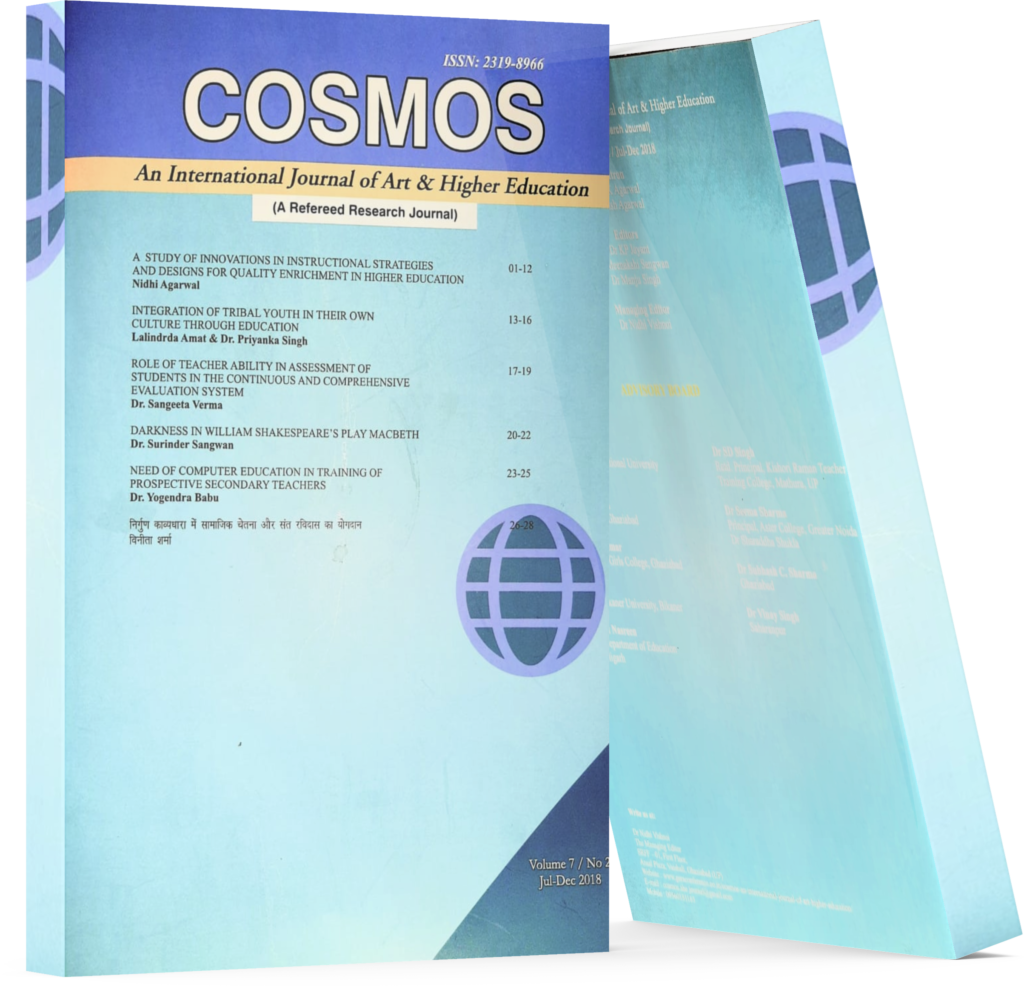Level Of Students’ Satisfaction Of Needs In Relation To Their Academic Performance
Keywords:
Satisfaction of Needs, Academic Performance, and GWA.Abstract
Multiple researches have attempted to determine whether there is any relationship between students’ academic performance and their self-esteem. The study was anchored on the theory of Abraham Maslow's Hierarchy of Needs and aimed to analyze whether or not the student’s satisfaction of needs had any effect on their academic achievement. A hypothesis was formulated that students with higher satisfaction of needs will have higher academic performance. A total of 201 participants were selected randomly from four colleges at the Central Philippine State University-Hinigaran campus. Out of the 201 participants, 89 were second year, 68 were third year, and 44 were fourth year level, having enrolled in the semester. In identifying the sample size, the researcher made use of Slovin’s formula. Chi-Square was used in determining the significant relationship between a respondent’s academic performance and the level of satisfaction with their needs. The self-made questionnaire was validated with 4.06 results. Results showed that there was in fact a significant relationship between a respondent’s academic performance and the level of satisfaction with their needs. It was concluded from the results that students with higher satisfaction of needs had higher academic performance.
Downloads
References
Feroz, (2018). “Correlating Self-Esteem and Academic Outcome”. Psychology and Behavioral Science International Journal, 4.
Pourshafeyi, H., (1991). “Studying the Relation between Self-Esteem and Academic Achievement of Senior High School Students of Qaen (MA thesis)”. Teacher Training University.
Banafshe, Hasanvandi and Mohamad Khaledian, (2012). “The Relationship of
Emotional Intelligence with Self-esteem and Academic Progress”. International Journal of Psychology and Behavioral Sciences, 2(6): 231-236.
Maslow, A.H., (1943). “A theory of human motivation”. Psychological Review, 50(4), 370-96.
Lane J., et. al., (2004). “Self-Efficacy, Self Esteem and Their Impact on Academic Performance”. Social Behavior and Personality: An International Journal, 32(3): 247-256.
Sadaat M., et. al., (2012). “Self-esteem in Iranian university students and its relationship with academic achievement”. Procedia-Social and Behavioural Sciences, 31: 10-14.
Mohammad, A., (2010). “Relationship between Self-esteem and Academic Achievement amongst Pre-University Students”. Journal of Applied Sciences, 10: 2474-2477.
Abdullah, O.E., (2000). “Relationship Among Achievement Motivation, Self-Esteem, Locus of Control and Academic Performance of Nigerian”. The Nigerian Journal of Guidance and Counselling, 7(1), 130-141.
Booth M.Z. and Gerard J.M., (2011). “Self esteem and academic achievement: a comparative study of adolescent students in England and the United States”. National Centre for Biotechnology Information, 41(5): 629-648.
Zimmerman, B.J., (2010). “Self-Regulated Learning and Academic Achievement”. Educational Psychologist, 25(1): 3-17.

